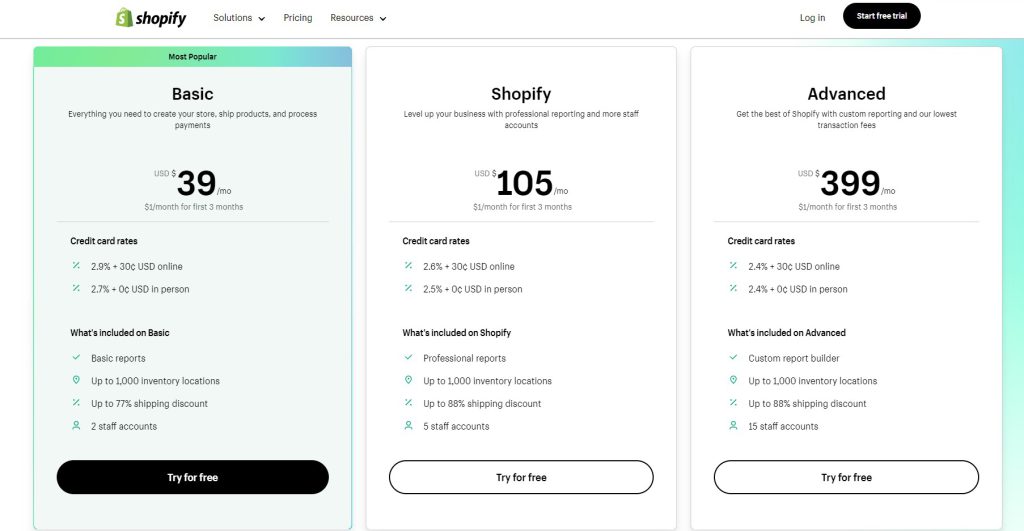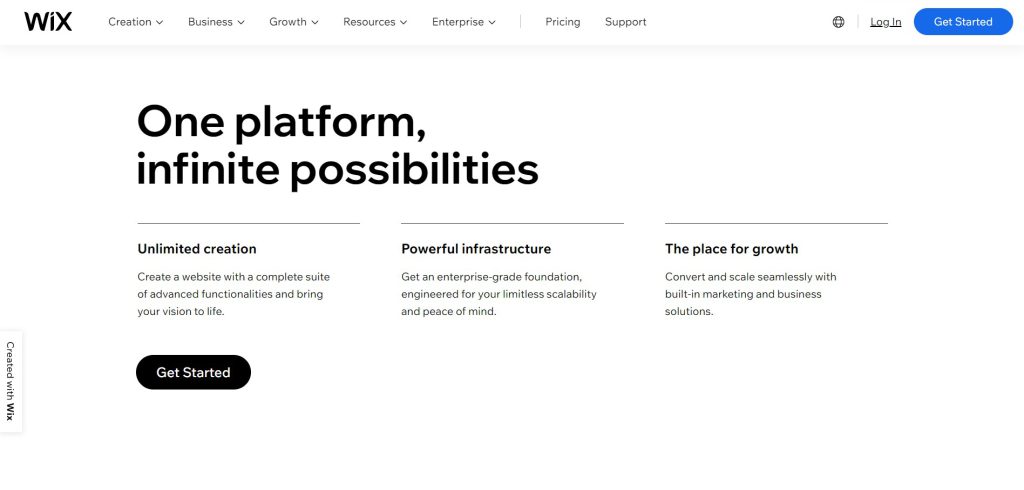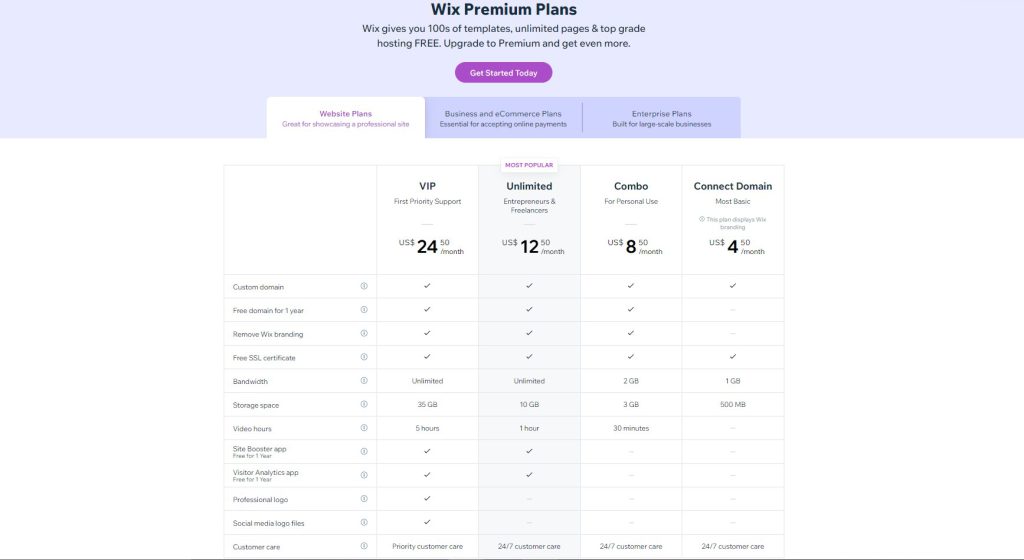5 Best Ecommerce Platforms For SEO in 2023
If there's one thing all online stores should prioritize this year, that is e-commerce SEO.
If you are starting a new business from scratch or scaling, optimizing your online business for SEO can give you the advantage of reaching potential customers.
In this blog, you will learn about SEO for e-commerce website, how to do SEO for ecommerce site with helpful information on top SEO-friendly platforms.
If you're seeking an e-commerce SEO agency for consultation, or SEO services for ecommerce website, we are just one call/email away.
Table of contents:
- What is SEO in e-commerce?
- How to do e-commerce SEO?
- Which e-commerce platform is best for SEO?
- How to choose the best e-commerce platform with SEO?
Let's dive right in.
What is SEO in ecommerce?
SEO or Search Engine Optimization is simply improving organic traffic to a website on a Search Engine Results Page. (SERP)
The higher your website ranks on SERP, the higher you can boost your website's online visibility.
For example, if you search for “bucket hats for men”, the top two results on the search engine page have a higher possibility of getting more attention.
And with the help of SEO and its targeted keywords that suit your audience, you can get the attention your business deserves.
Read More: SEO Company - How To Choose The Best in 2023
How to do Ecommerce SEO?
01. Keyword research
In SEO, conducting keyword research has an impact in the long run. That is because you are targeting the keywords, queries and phrases your ideal buyer would search for.
These are commercial intent keywords.
For example, “soft toys online”, “t-shirts for women” etc.
Nevertheless, you need to target the right keywords and not over-optimize to fall into keyword cannibalization.
Keyword research for ecommerce SEO can be conducted with SEO tools such as SEMrush, Google Auto suggest, Answer the public, Amazon etc.
02. Site Architecture
Site architecture determines how all pages and categories are interconnected. It affects SEO for your ecommerce website and user experience.
Further, maintaining a simple site architecture from the start can avoid various irrelevant issues later on when scaling.
Hence, key factors to remember are:
- There are no orphan pages. All pages can be linked back to the homepage.
- Pages are no more than three clicks deep from the main page.
Finally, you want to ensure that your e-commerce site is easy to navigate and provides a satisfactory experience and a seamless checkout process.
03. On-Page Elements for Ecommerce SEO
Next, you need to consider on-page SEO because it can improve your website's performance as well as rankings. This includes optimizing your product category pages and product pages.
Here are some of the basic on-page elements for e-commerce SEO:
- Meta Title
- Meta Description
- URL
- Image Alt Text
- Product descriptions
Read More: E-commerce SEO Checklist to Drive Sales in 2023
Which e-commerce platform is best for SEO?
Here's a list of platforms that we found to be the best for ecommerce SEO.
01. WooCommerce
WooCommerce is a fantastic alternative for your e-commerce business if you are comfortable with WordPress. In fact, it is a great choice if you wish to convert your WordPress website into an online store.
Benefits of WooCommerce
WooCommerce has a lot of advantages for your online store.
- Mobile-friendly UI
- Reliable tech support
- User-friendly navigation
- Customizable features to create your website aligned with your brand.
- Its SEO-friendly design and features include customizing URLs, integrated 301 redirects, and built-in text editing for blogging.
Cons:
- High-cost hosting.
- Difficulty to troubleshoot.
- Multiple plugins are required to function.
Pricing: The platform is free but, you can upgrade to a Premium plan. Domain registration costs $15 per year, while the price of hosting starts at $6.95 per month.
02. BigCommerce
Compared to other SEO platforms for ecommerce websites, BigCommerce is both well-liked and helpful to SEO. Also, it offers an absolutely amazing user experience on all devices.
Benefits of BigCommerce:
- Mobile friendly.
- Google-friendly URLs.
- Integrated 301 redirects.
- Edit access to your text file.
- Customization features for your store with a variety of plugins and themes.
- User-friendly interface that enables customers to browse your store and find what they need.
- A built-in SEO tool to improve the search engine optimization of your website.
Cons
- High cost.
- Slow-loading page speed.
- Pricing: The platform offers multiple plans inclusive of Enterprise plans. Plan monthly pricing ranges from $29.95, $79.95, and $299.95.
03. Magento or Adobe Commerce
Magento is an e-commerce platform with full customization features and a popular option among businesses.
Moreover, as an open-source platform, anyone can modify it to create the website they like. Whether you need a complex navigation bar or a unique checkout process, the platform is customizable as you desire.
Benefits:
- A flexible framework that enables programmers to create original modules.
- You can use a variety of themes and layouts to make your store unique.
- A robust API that combines Magento with external programs.
- Many built-in tools such as an order management system, a shipping calculator, and a payment gateway.
Cons:
- Although it is completely customizable, it can be a challenging platform.
- Coding knowledge required.
- High cost.
Pricing: Magento offers a wide range of services to its clients. Magento Commerce is one of them, costing $22,000 to $125,000 a year. Hosting costs begin at $100 to $500 per year.
04. Shopify
Shopify is one of the best e-commerce platforms for beginners, small businesses and SEO.
Benefits of Shopify
- It features a vast collection of plugins to expand the functionality of your Shopify store.
- It's simple to use. It is one of the easiest websites to utilize for opening a store. Users can choose a template, add what they need, and establish their store with the help of this platform.
- Includes a built-in blogging tool that makes it simple to produce and post content for your e-commerce company.
- It is ready for Google Analytics to track sales and traffic and analyze.
Cons
- Cannot edit robots.txt.
- Change your URLs.
Pricing: Shopify offers free 3-day trials for all their plans starting from $39(Basic) to $399 (Advanced).


05. Wix


For an e-commerce platform with integrated SEO tools, Wix is the best option.
Benefits of Wix:
- Easy to set up and use.
- A built-in SEO tool to improve the site's search engine optimization.
- A variety of themes and designs that you can use to design the UI of the store.
- A user-friendly interface for visitors to easily find what they need.
- Enables the creation of content using the integrated blog tool.
- Robots.txt editor.
- Affiliate tag.s
- Bulk 301 redirects are supported.
- Marketing automation is available.
Cons:
- Not great for Amazon stores.
- Poor upselling.
Pricing: Most basic plan starts at $4, $8 for the Combo plan (personal use), $12 for the unlimited plan for entrepreneurs /freelancers.


Read More: 13 SEO Best Practices for B2B Companies (2023)
How to choose the best e-commerce platform with SEO?
In conclusion, choosing the right e-commerce platform is critical for the success of your online store. For this, you can consider your expertise, budget, and the scale of your e-commerce store.
Moreover, with your choice of e-commerce platform, you must be able to optimize product pages and make relevant technical and on-page SEO updates. With the right e-commerce platform, you will be able to take your business to the next level, amplify sales and reach your target audience.
Let's take your e-commerce website higher. Get in touch with us.
Read Next: 5 E-commerce SEO Companies to Work With 2023




